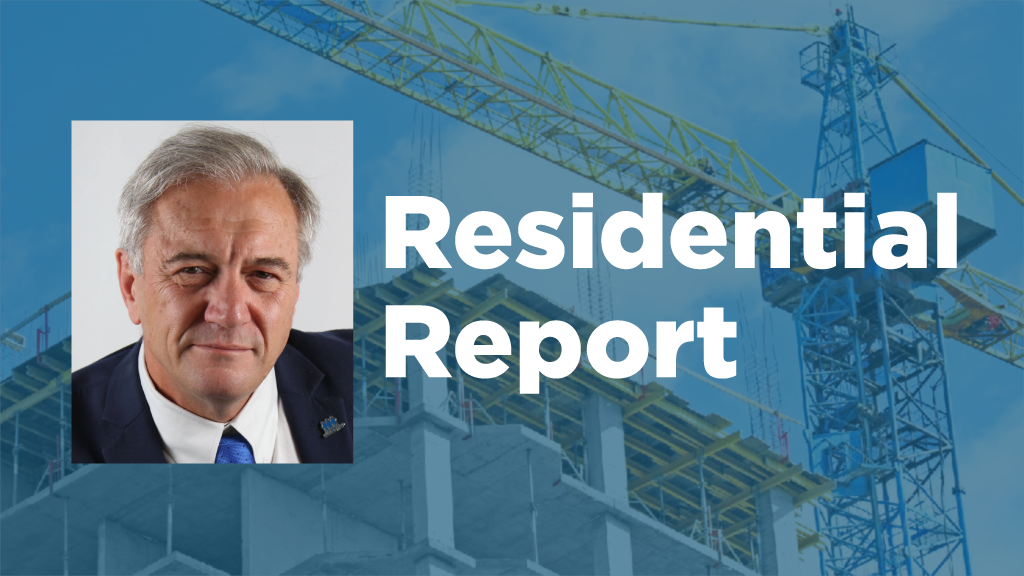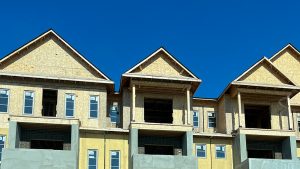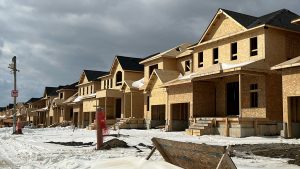We all want to build green to reduce carbon emissions and better protect our planet from climate change.
However, the targets being set by both the Province of Ontario and City of Toronto are unrealistic.
The two levels of government are intent on rushing to implement new green building standards and emissions targets at a time when the housing industry is dealing with myriad other issues such as high interest rates, inflation, supply chain and labour shortages, and escalations in the cost of materials.
Piling on additional regulatory requirements to make buildings greener and emit less carbon will only add to the difficulties facing the residential construction industry — at the very time we need more housing.
Presently, we are not building anywhere near the amount of housing that we need to meet demand. Our population is growing and there is a very large gap between demand and what’s being built.
We need 1.78 million new homes in Ontario in the next decade. To reach that, we must double production. Homes have become unaffordable. Individuals need to make more than $200,000 a year to buy a home.
Developers and builders are already doing everything they can to mitigate the impact of greenhouse gas (GHG) emissions and be part of the solution to climate change, but in the midst of a generational housing supply crisis it doesn’t make sense to jam new restrictions down the throats of developers.
If provincial and municipal politicians are truly serious about getting more housing built, they should stop meddling with the present standards and instead focus on clearing the path to facilitate construction of much-needed housing.
In Toronto, the city has accelerated its TransformTO Net Zero Climate Strategy, which aims to achieve a community-wide GHG emissions target of net-zero by 2040. As a result, under the Toronto Green Standard (TGS), buildings must achieve net-zero emissions by 2028. But there’s no firm estimate of the cost and consequences this will have on house prices and electricity costs.
Most of the housing built in Toronto is highrise towers made of concrete, glass, aluminum and precast elements which are carbon intensive. This poses a problem when it comes to reducing embodied carbon.
The strategy calls for 27,000 homes in Toronto to be retrofitted by residents each year at their own expense until 2040. We question how that will happen and how installing electric vehicle charging stations for residential units will be possible when the grid simply won’t be able to meet energy demand.
To obtain a site plan approval in 2028, buildings must be fully electrified. TGS requirements will effectively ban new natural gas-fired equipment for space heating and domestic hot water heating. This will put more demand on aging distribution infrastructure and the province’s electrical generation capacity.
An analysis has shown phasing out natural gas by 2030 would result in frequent and sustained blackouts and add $100 to the monthly electricity bill for the average homeowner.
The province, meanwhile, is rushing to implement certain green building standards related to building construction into the Ontario Building Code (OBC) by this summer, with them coming into effect in 2024.
Meetings are being set up to begin developing a new province-wide approach for interested municipalities and other stakeholders on transitioning to certain green building standards related to building construction into the OBC.
But the timetable for the changes is unrealistic as it means that the building industry and practitioners would have less than 12 months to put them into practice.
Construction planning cycles are long and complex.
Instead of a hasty approach that will hurt the homebuilding industry, the province and municipalities should move forward in a predictable and measured manner towards sensible and achievable action that will consider the capacity of the industry.
Rushing the process will merely throw a wrench into the works. It would be a nightmare for the residential construction industry and result in more hurdles and delays in building permit applications while developers and builders and building code officials get acquainted with the new standards.
The residential construction industry is treated like it’s anti-green, with no desire to reduce carbon emissions. However, builders are concerned and the industry is moving towards more green practices. Residential construction is a family industry. Many employers have children and are worried about the future. But we are in a housing crisis and the industry is facing a perfect storm of issues.
The industry should not be cast as the bad guys and gals in all of this and should not be forced to take actions that will bring much-needed construction of vital housing to a virtual halt.
Richard Lyall is president of the Residential Construction Council of Ontario. He has represented the building industry in Ontario since 1991.











Recent Comments
comments for this post are closed